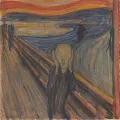Mental Manipulation Emergency
In Italy, but unfortunately not only there, there is an ongoing emergency: a virus that was thought to have been permanently eradicated back in the early 1980s has made a comeback. It is again circulating and being transmitted by communicating, exchanging ideas, changing one's point of view and embracing new life experiences. It is the “virus of mental manipulation”. It seems that the only vaccine that can stop this alarming phenomenon is a law to control and limit the freedom to change one's opinion about someone or something.





















